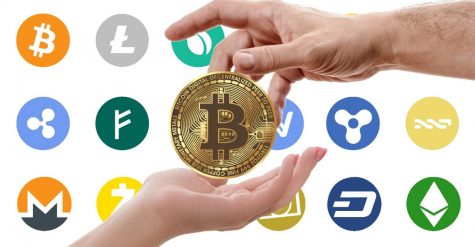Discussing the Characteristics of Cancel Culture with English Teacher, Mrs.Elizabeth Smith

Cancel culture has become a prominent issue in our society as there is an increased use of social media platforms and technology, in general.
The concept of “cancel culture” has become seemingly more popular in a modern world full of technology and means of connection. In this modern world, it has become nearly impossible to hide any of your past mistakes, or your misunderstandings, and even if they’re hidden, someone always finds evidence.
In order to gain more of an understanding of what “cancel culture is”, I spoke to English teacher, Mrs.Elizabeth Smith, and a few of my classmates. Mrs.Elizabeth Smith explained that “cancel culture is where someone is ‘canceled’ -or blocked, whether it be online or in social media. The idea is that we stop giving support to someone who has done or said something objectionable or offensive.” It’s the extreme version of “your mistakes have consequences.” However, the consequences don’t just include punishment or being educated on what you did wrong, but also banishment and isolation from the social world.
Cancel culture exists on almost all platforms. We’ve seen it during political campaigns, through social media with big-time influencers, and movie stars. Cancel culture exists, as Smith explains, “because people hurt and offend others both verbally and through their behaviors. This can be anything that is considered objectionable-racial slurs, hateful comments, insensitive and inappropriate language, and behavior. “ This idea of “canceling” someone for their past (or current) mistakes has become a prominent issue in schools and lower-level politics. Especially in these types of situations where people are still being educated, it is detrimental to cancel someone. As Senior Briana Duka explains, “cancel culture is highly destructive, and doesn’t allow people to learn and grow.” For example, if a student posts something on their Instagram that could come across as “cultural appropriation”, there’s a strong possibility that they will be canceled. Of course, their actions were incredibly offensive to another person’s culture, but how can someone learn from their mistakes if we are “canceling” them?
Smith emphasizes that
Social media has greatly contributed to the ease at which we go about “canceling” people. It has essentially provided a “cancel culture” platform that makes it easy for everyone to use. As Smith states, “social media can allow for an instant rise to fame, and also an instant fall to shame.” Ironically, teenagers and young adults who attempt to use their social media platforms to “educate” and “spread awareness” have also used it to silence people who don’t have the same understanding as them. This isn’t justifying their behavior, but rather drawing attention to the fact that not everyone has had the same resources or has grown up in a progressive and educated household or environment.
Furthermore, Smith provides an example of a TED talk given by Monica Lewinsky titled the “Price of Shame” that explains Cancel culture.
Smith describes the details of the TED talk: “In it, she details what it was like to be so publicly humiliated and how she was patient zero losing her reputation on a global scale. She discusses the ‘rush to judgment enabled by technology and how it has led to mobs of stone-throwers. It also reminded me a little of Shirley Jackson’s short story, ‘The Lottery.’ But she mentioned something in her story that struck me the most-her mother. Her mother’s life was also destroyed. And her mother sat outside of her room fearing for Monica’s life-so afraid that she was going to take her own life because the pain of the global humiliation was just too much. When we throw stones back, I believe we engage in as hateful behavior-and that can destroy not only ‘our target’ but innocent people/bystanders as well. Everyone close to our canceled celebrity also suffers subjected to the same cruelty-. humiliation-and humiliation amplified through technology.”
In general, canceling someone doesn’t actually fix anything. In my opinion, it even causes more harm than good–it can lead to censorship and fear to speak your opinions. Junior, and newspaper staff member, Gabriella Landis, states that “It (cancel culture) is not a black and white issue. It’s important to examine it on a case by case basis with nuance.” How can one have the ability to grow from their mistakes if we are constantly canceling large groups of people for things that they might not understand? As a society, we have failed time and time again to recognize that each individual is different and isn’t perfect. Smith adds that “to ‘cancel’ someone doesn’t erase their offense and it doesn’t correct it. As an educator, I definitely believe that calling in and building bridges will lead to a brighter, more human future. I hope we can do that.”
Your donation will support the student journalists of Parkland High School. Your contribution will allow us to purchase equipment and cover our annual website hosting and printing costs.





